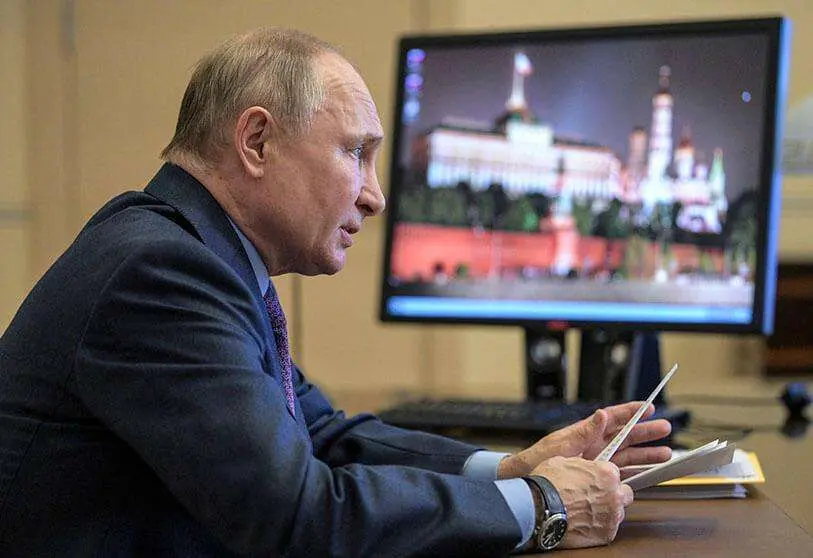What is Russia's economic suffocation after?

Never before in modern history has a major power been subjected to such deep and widespread economic sanctions as Russia is today. What is the purpose of this massive boycott? Is it to punish the Kremlin leadership, Vladimir Putin himself, as the person responsible for the war in Ukraine? If so, why is the punishment not limited to the political, military and business elite surrounding the Russian president? Or are the sanctions pursuing another goal? If so, what is it?
The system of economic and trade sanctions imposed in general by a country or a group of countries that set themselves up as the final arbiter of what is good or bad in the world often pursues very specific objectives.
The sanctions imposed on Cuba after the Revolution that overthrew the dictator Fulgencio Batista in 1959 were imposed when Fidel Castro entered the Soviet orbit and even agreed to install offensive weapons and missiles in Cuba. The US intended the sanctions to overthrow the Castro regime. They failed with the Bay of Pigs invasion, and they wanted to do so by strangling its economy.
Sanctions against the Tehran regime are also intended to prevent Iran from having an atomic weapon. And, if possible, to push for regime change in Tehran.
Something similar happened with the economic sanctions imposed by the United States on Saddam Hussein's Iraqi regime after the first Gulf War. They were intended to prevent Iraq's rearmament and topple the pan-Arab leader.
But what do these new sanctions on Russia seek? Overthrowing Vladimir Putin is an illusion, even if domestic discontent increases and sectors of the Nomenklatura would like to end the war in Ukraine, because it does not favour their business. Stifling Russia's economy is a pipe dream; it has the reserves to go it alone for many years to come. What then?
A direct effect of this sanction swarm is to sever economic, financial and trade ties between Russia and the EU, a way of eliminating any Europeanist urge to distance itself from the United States; not only in the military field with NATO's euphoria that has taken over most of the 27 EU countries; but also in the economic field. Washington regards Europe as its own market, and does not admit Russian interference, or at least seeks to avoid it.
This 'Global Sanctions' also sends a message to third parties: firstly, to the countries of Asia, Africa and Latin America, so that they see the risks they run if they continue to maintain relations with Russia; but above all to the big countries, such as China and India. The Free Trade Agreement between Moscow and New Delhi aims to reach $30 billion in trade by 2025. As for trade relations between China and Russia, according to the latest figures, they are worth around 150 billion dollars. Do the United States, which is leading the sanctions, want to intimidate these Asian countries from saving Putin's Russia? Do they want to warn them that they will not be able to be paid in dollars? That they will not be able to use international banks? It is not at all clear.
In any case, trying to understand the ultimate purpose of the Global Sanctions against Russia is no easy task. Because it is no longer just a matter of boycotting trade, sales to Russia or purchases from that country, but the measures are affecting the global system of economic and financial relations itself, the banking system, the credit system, direct investments, and the oil and gas energy market. Taking the sanctions to their ultimate consequences means questioning the current international system put in place after the Second World War, the reign of the dollar as the reference currency, the World Trade Organisation, the International Monetary Fund, the World Bank, the system of regulation of raw materials, and much more.
Moreover, if the sanctions plan persists, there is a risk that the BRICS countries (Brazil, Russia, India, China and South Africa), which have a GDP greater than that of the entire West combined, will seek alternatives to the current system, with a new reference currency, new rules for trade, and new international economic and financial bodies.
Is this what the promoters of Global Sanctions are after? In any case, it is a risk that this will happen.

